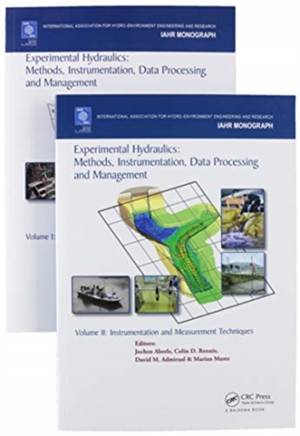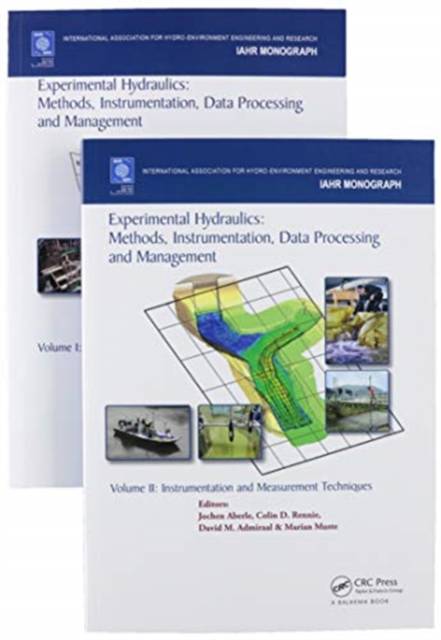
- Afhalen na 1 uur in een winkel met voorraad
- Gratis thuislevering in België vanaf € 30
- Ruim aanbod met 7 miljoen producten
- Afhalen na 1 uur in een winkel met voorraad
- Gratis thuislevering in België vanaf € 30
- Ruim aanbod met 7 miljoen producten
Experimental Hydraulics: Methods, Instrumentation, Data Processing and Management, Two Volume Set
Omschrijving
This two-volume book is a comprehensive guide to designing, conducting and interpreting experiments in a broad range of topics associated with hydraulic engineering. It is the first substantial effort in hydraulic engineering to assemble in one place descriptions of all the components of experimentation along with a concise outline of essential theory to highlight the intrinsic connection between analytical and experimental research and illustrate the need for their complementary use. Providing end-to-end guidance to support experimentalists is long overdue, as most of the information can only be found in scientific papers or specialized monographs on laboratory and fieldwork practice. The book was prepared for college faculty, researchers, practitioners, and students involved in hydraulics experiments.
Written by a team of more than 45 authors well-experienced in hydraulics experimentation, the book takes into account experiments performed under a range of conditions, including well-equipped and -staffed laboratories, and laboratories lacking aspects of advanced instrumentation and expertise. The book could serve as a textbook on hydraulics experiments. Its style is intentionally concise and makes frequent use of convenient summaries, tables and figures to present information. The writers provide specific guidance on methods and instruments currently used in hydraulics experiments, and emphasizes new and emerging measurement technologies and analysis methods. Extensive references enable interested readers to further explore details on each topic. Although the book focuses primarily on laboratory experiments, including hydraulic modelling, it also applies to fieldwork of varying complexity and accessibility.
Specificaties
Betrokkenen
- Uitgeverij:
Inhoud
- Aantal bladzijden:
- 906
- Taal:
- Engels
- Reeks:
Eigenschappen
- Productcode (EAN):
- 9780367570293
- Verschijningsdatum:
- 30/06/2020
- Uitvoering:
- Boek
- Afmetingen:
- 175 mm x 246 mm
- Gewicht:
- 369 g

Alleen bij Standaard Boekhandel
Beoordelingen
We publiceren alleen reviews die voldoen aan de voorwaarden voor reviews. Bekijk onze voorwaarden voor reviews.










